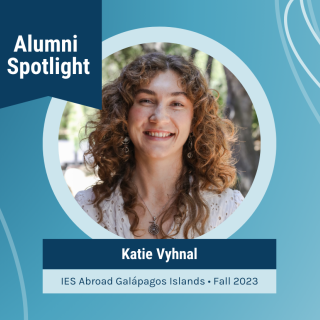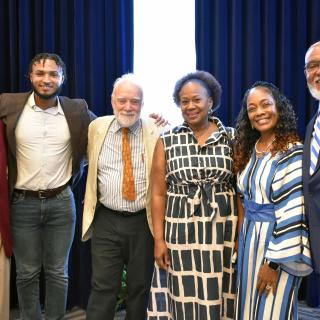 In 1993, Betsy Nathan (Beijing 1993-94) embarked on a year-long study abroad experience in Beijing in order to learn to speak Mandarin. Little did she know, the experience would shape her future career as owner of Pagoda Red, a gallery and showroom that specializes in 18th and 19th century Chinese antique furniture and artifacts for the home and garden.
In 1993, Betsy Nathan (Beijing 1993-94) embarked on a year-long study abroad experience in Beijing in order to learn to speak Mandarin. Little did she know, the experience would shape her future career as owner of Pagoda Red, a gallery and showroom that specializes in 18th and 19th century Chinese antique furniture and artifacts for the home and garden.
Read on to learn how studying abroad influenced Betsy’s career path and how she continues to use her Chinese language skills today.
IES Abroad: How did studying abroad influence you, personally and professionally?
Betsy Nathan: My study in China opened the door to much of my future. While in Beijing, I developed my interest in Chinese furniture and met local experts, one who I still consider a mentor to this day.
IES Abroad: What were some of your most memorable study abroad experiences?
BN: Just last week, I told the story of being stuck alone in the Kunming Airport waiting for the group to pick me up. At the time, it was a bit disconcerting to be by myself in a Chinese airport (pre cell phone) with little Mandarin ability. But I reflect on that moment when I feel stuck. I figured out what to do to with little resources and showed that, with some creativity and will, there is usually a way!
IES Abroad: When you first arrived in China did you have any career goals in mind?
BN: Yes. Friends I met were helping build road systems and cellular systems. I thought I might get involved in some infrastructure or heavy industry, too.
IES Abroad: How did you first become interested in Chinese antiques?
BN: The first Beijing apartment I stayed in was just across from the antique market. To get to class I had to wander through it.
IES Abroad: What led you to start your gallery, Pagoda Red?
BN: It wasn’t a straight path. I had been collecting on my own and a friend asked me to help him open a gallery in D.C. He changed his mind mid-plan, and I didn’t want to let my contacts in China down. I ended up bringing the selections to Chicago—the very beginnings of Pagoda Red.
IES Abroad: Tell us about Pagoda Red. What makes your offerings unique?
BN: I select very carefully—beautiful forms, unusual configurations, sometimes strange and unusual. Often in original condition in need of attention. Our conservators have a light touch and understand how to preserve a spirit.

IES Abroad: How do you find and select the pieces for your gallery?
BN: I work closely with the people I’ve worked with since the beginning. Of course, my network has expanded, but the connections to these people enable me to find the most wonderful and unusual pieces, even as availability has shrunk drastically.
IES Abroad: Currently, what are some of your most popular items?
BN: We love the organic forms that the 16th-18th century Chinese scholars favored.
IES Abroad: What do you love most about your job?
BN: It has offered me the opportunity to dive deeply into another place and be surrounded by beautiful things.
IES Abroad: What skills did you learn abroad that influence how you run your business?
BN: To know when to slow down and think.

IES Abroad: Do you still use your Chinese language skills?
BN: Yes. Many of the people I work with in China do not speak English. Thank heavens! This language gap has kept my Mandarin alive.
IES Abroad: What are some simple ways to incorporate Chinese art and antiques into everyday interior design?
BN: We work with some of the most influential designers in the world. They understand the way to wonderfully mix a sculptural yoke back chair or lacquered Chinese altar table into multitudes of settings. We ship to beach homes in the Hamptons and Hawaii, modern Mountain escapes, traditional suburban Tudors and gardens, both terrace and estate. When you juxtapose the texture of time and the classic striking forms of Chinese furniture with modern furnishings and great art, it is hard to go wrong.
IES Abroad: What advice would you give to students who are thinking of studying or interning abroad?
BN: Don’t cling so closely to the student group. Try to connect with people locally to practice your language skills and to develop understanding of the way other people live and think.




